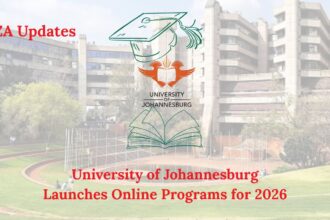Application Fee and Banking Details for TUT Courses Have Spaces in 2026. One of the most crucial steps in your application process is understanding the application fee and correctly submitting your banking details. Missing this essential step could delay or even invalidate your application. This comprehensive guide outlines everything you need to know, ensuring your payment process is accurate, secure, and aligned with TUT’s latest requirements.
What Is the TUT Application Fee for 2026?
The application fee for TUT courses in 2026 is R240. This payment is non-refundable, meaning once you’ve paid it, you cannot claim it back, even if you decide not to proceed with your application or your application is unsuccessful. This fee is used to cover the administrative costs of processing your application, verifying your documents, and updating their system.
Why Is the Application Fee Important?
The R240 application fee is more than just a formality. Without this payment:
- Your application will not be processed.
- You may miss your preferred course intake.
- Your documents may not be reviewed by the admissions office.
Hence, paying this fee is a mandatory requirement for all first-time applicants at TUT.
Application Fee and Banking Details for TUT Courses Have Spaces in 2026
TUT has provided a dedicated ABSA Bank account for application fee payments. All prospective students applying for the 2026 academic year must ensure they deposit the exact amount into the official account listed below:
- Bank Name: ABSA Bank
- Account Number: 04 000 000 3
- Reference: Use your ID number as the reference (this helps the university match your payment to your application).
It is critical to ensure that your ID number is correctly entered as a reference during the payment process. Failing to do so might result in the university being unable to trace your payment, which could delay or nullify your application.
How to Make the Payment
You can pay the application fee via the following channels:
- Online banking (EFT)
- ABSA branch deposit
- ATM deposit at an ABSA terminal
- Mobile banking apps
Always make sure to keep a proof of payment. This is a key document that you must upload when submitting your online application or hand over if applying manually. Without it, your application could be considered incomplete.
| Detail | Information |
|---|---|
| Application Fee | R240 (Non-refundable) |
| Bank | ABSA Bank |
| Account Number | 04 000 000 3 |
| Reference | Your South African ID Number |
| Proof of Payment | Required for application submission |
| Payment Methods | EFT, Bank Deposit, ATM, Mobile App |
Common Mistakes to Avoid
Applicants often make small errors that have major consequences. Here are common pitfalls to steer clear of:
- Incorrect Reference: Always use your own ID number, not a parent’s or someone else’s.
- Wrong Account Number: Verify the ABSA account number before proceeding.
- No Proof of Payment: Keep the receipt or transaction slip and upload it during application.
- Late Payment: Don’t delay; pay the application fee before the closing date to avoid being left out.
What Happens After Payment?
Once you’ve made your payment:
- Your application enters the processing phase.
- TUT will match your ID number with the payment made.
- The admissions team will verify your documents and check whether you meet course requirements.
You can then track your application status online using your TUT student number once it’s generated.
Conclusion
Paying the TUT application fee for 2026 is a simple yet crucial part of your university application process. By following the correct banking procedures, using your ID number as a reference, and keeping your proof of payment, you can ensure your application is not rejected due to technicalities.










